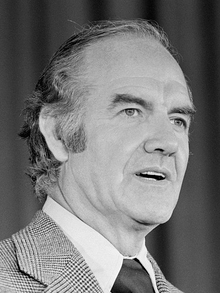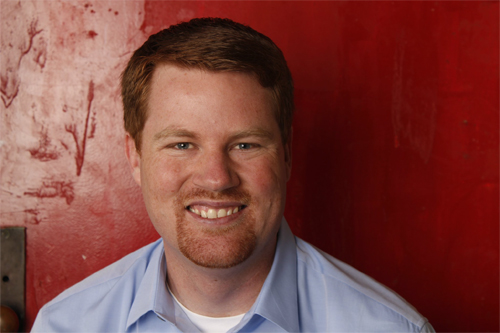“A Piece of My Mind”
January 2013 Newsletter from Donald Shoemaker
Advancing Christian Faith and Values, Defending Religious Liberty for All, Supporting Civility and the Common Good through Preaching, Teaching, Writing, Activism and Reasoned Conversations
www.donaldshoemakerministries.com
2012 was a year full of activity, but I did get some choice reading done:
The War of 1812 by Donald R. Hickey (200th anniversary)

The Church: Sacraments, Worship, Ministry, Mission by Donald G. Bloesch (spiritual nourishment; needed message)
The Infancy Narratives , vol. 3 of Jesus of Nazareth by Pope Benedict XVI (uplifting Christmas season reading; good set)
Bloody Crimes: The Chase for Jefferson Davis by James L. Swanson (“prep” for the Lincoln movie)
Still the Best Hope (why American values must prevail over Leftism and Islamism) by Dennis Prager (highly recommended)
Bonhoeffer (faithful Christian martyr) by Eric Metaxas
“Christmas a Time for Tears” – Bible Insight
A voice is heard in Ramah,
weeping and great mourning,
Rachel weeping for her children
and refusing to be comforted,
because they are no more.
– Matthew 2:18 NIV (quoting Jeremiah 31:15)
Rachel, Jacob’s beloved wife, died giving birth to her second son, Benjamin. “So Rachel died and was buried on the way to Ephrath (that is, Bethlehem). Over her tomb Jacob set up a pillar, and to this day that pillar marks Rachel’s tomb” (Genesis 35:19 20).
Rachel, who gave her life for her child, becomes the “weeping mother” in the Book of Jeremiah centuries later as the children of Israel pass her grave bound for captivity in Babylon. Both Jewish and Christian tradition sees Rachel weeping for generations of Israelites killed or taken captive.
Herod the Great was king when Jesus was born in Bethlehem. About the same time he revealed his paranoia and treachery by killing his own three sons. According to the Gospel of Matthew, Herod tried to trick the Magi (“Wise Men”) into revealing Jesus’ location so he too could come to “worship him” (really, to kill him).
An angelic dream to the Magi thwarted this, and in a rage (and to take no chances that this child might live) Herod ordered that all boys ages two and under in the region of Bethlehem be killed. Skeptics doubt this story, but it is “vintage Herod” and the number of innocent children killed in this horror was likely small by “massacre” standards.
But Herod’s treachery against his intended victim was thwarted once again by an angelic dream, this time to Joseph, who was told to take Mary and Jesus quickly to Egypt. Matthew sees in Herod’s murderous treachery the words of Jeremiah about Rachel’s tears brought to a new level, “fulfilled” at Bethlehem.
This Christmas season the story rose again to a new and barbaric level. Rachel is ever the “weeping mother” for innocent children violently killed.
Rachel weeps today over the innocents killed in Newtown, Connecticut. In her weeping we see the sorrow of God.
We weep with Rachel. We pray for the sorrowing—especially the families and first responders. We pray and work for solutions (not for “understanding”, for there is none to be had).
We have elected leaders to the sacred trust of ensuring “domestic tranquility”. We ask them to lay aside prejudice, favoritism and bias and strive for remedies—preventions that might work as much as possible in a very imperfect world where terrible evil still mars the Christmas message. Yet thereby this very evil reminds us how important that message still is.
“Prophets are Good for Business”
“Do not seek revenge or bear a grudge against one of your people, but love your neighbor as yourself.” (Leviticus 19:18 NIV)
“If a man uncovers a pit or digs one and fails to cover it and an ox or a donkey falls into it, the owner of the pit must pay for the loss” (example of the principles of liability and restitution, Exodus 21:33)
“Settle matters quickly with your adversary who is taking you to court. Do it while you are still with him on the way…” (Jesus teaches on settling matters without litigation, Matthew 5:25)
King Rehoboam “answered the people harshly. Rejecting the advice given him by the elders, he followed the advice of the young men and said, ‘My father made your yoke heavy; I will make it even heavier’.” (1 Kings 12:13 14). Way to go, Rehoboam!

Many of us remember George McGovern, who died in 2012 at 90, as an unapologetic liberal and the antiwar candidate trounced by Richard Nixon in 1972. His acceptance speech at the Democratic convention (“Come Home, America!”), delivered in the middle of the night due to poor convention planning, seemed preachy and self righteous. I got a more balanced view of this man reading Stephen Ambrose’s book The Wild Blue (2001) on McGovern’s bravery piloting B 24’s in World War II.
After his death an article he wrote in 1993 about a failed business venture, an inn and convention facility, got renewed attention. (www.inc.com/magazine/19931201/3809.html)
He speaks of two hard learned lessons.
First, “America has become the most litigious society in the world.” This trend “wars against a congenial and humane way of life. We begin to see one another not as compatriots, neighbors, and fellow citizens but as potential plaintiffs and defendants. If we don’t stop suing one another for every possible misfortune or alleged negligence, we are going to undermine both the health of our economy and the quality of our society.”
Second, “legislators and government regulators must more carefully consider the economic and management burdens we have been imposing on U.S. business.”
“I’m for protecting the health and well-being of both workers and consumers. I’m for a clean environment and economic justice. But I’m convinced we can pursue those worthy goals and still cut down vastly on the incredible paperwork, the complicated tax forms, the number of minute regulations, and the seemingly endless reporting requirements that afflict American business.”
McGovern should have been a businessman before becoming a legislator. Perhaps all legislators should work in the private sector first.
“I would ask a lot of questions before I voted for any more burdens on the thousands of struggling businesses across the nation. For example, I would ask whether specific legislation exacts a managerial price exceeding any overall benefit it might produce. What are the real economic and social gains of the legislation when compared with the costs and competitive handicaps it imposes on businesspeople?”
Both of these lessons learned take us back to biblical values. As we “love our neighbor as ourselves” we work to resolve issues as much as possible in ways that build human harmony rather than create adversarial situations.
And government—a lesson the young King Rehoboam didn’t learn— needs to be responsive to the people and avoid being a drain on their productivity and resources.
Religious Liberty Vigilance – “Roe V. Wade” at 40
“Congress shall make no law respecting an establishment of religion, or prohibiting the free exercise thereof… “
– 1st Amendment (Our “First Freedom” in the Bill of Rights)

January 22, 2013 marks the 40 th anniversary of “Roe v. Wade.”
One defense of “Roe v. Wade” is that, if government restricts abortion, it is “establishing religion” by accepting what a particular religion teaches about when life begins.
But I learned life begins at conception from my secular high school biology class. I learned of pre natal human life from secular sources. I was uneasy about abortion before even considering what the Bible might say.
In reality, every view about the value and meaning of “human life” involves non-scientific, religious or otherwise metaphysical assumptions. Even the views that life beings at birth or that human life is reckoned to being at age two (yes, age two!) involve non scientific judgments.
Keeping religious voices silent on the topic of abortion is wrong from both constitutional and societal standpoints. People with biblically formed consciences and a sense of social duty should never be intimidated by the efforts to shut their views up within stained glass walls.
See this Website from the U.S. National Library of Medicine for an objective perspective: http://www.nlm.nih.gov/medlineplus/ency/article/002398.htm
Upcoming Ministries
January 8 – Lead discussion on the church’s response to undocumented immigrants—S. Cal/Ariz. District of Grace Brethren Ministers at Bellflower Brethren Church (10:00 a.m.)
February 7 – Participate in a presentation on professional responses to the Salon Meritage incident (Oct. 12, 2011) for the Chaplain Corp of the Los Angeles Police Department
Good News from Grace
www.gracesealbeach.org


By a solid vote on December 9, the members of Grace Community Church of Seal Beach approved Steve Williams as the church’s next Senior Pastor. (At Grace, the “senior pastor” role is the only pastoral position that requires a vote by the congregation, and only at the time of hiring.)
Steve has served in pastoral roles at the church for 20 years and, with Associate Pastor Bob Wriedt, will lead the church well for years to come.
Message of the Month
I’ve seen a lot of fads come and go over 45 years of pastoral ministry.
Perhaps one of the worst, and the longest lasting, has been the “Church Growth Movement.” One starting point was Fuller Seminary in the School of World Missions. It captured the attention of pastors and lay leaders and built mega-churches—the “success” of which becomes the gold standard for judging ministries everywhere else.
Expository Bible teaching was replaced by motivational, “felt need” sermons. Sociological studies replaced Kingdom priorities in setting the church’s agenda. Marketing principles replaced biblical passions. Big vision challengers replaced caring pastors. The pastor shouldn’t speak on controversial topics because this isn’t “seeker friendly.”
Worship services were redesigned to draw the crowd. In so doing, they were stripped of many things distinctively Christian (like the reading of Scripture and intercessory prayer and symbolism) to be “non threatening” to the “seeker.”
It would drive good pastors from the ministry wherever it gained dominance—pastors committed to the Word and to being good shepherds of the sheep. In one book, the author distinguished between two pastoral styles and how the church should move to the style that fits Church Growth. It even taught how to replace the “inferior” style pastor with a better one. In my opinion, the “inferior” pastor was the kind the Bible recommends and the “better” style is rejected in scripture.
As is usually the case, the church needed to hear some things the Church Growth Movement was saying. Certainly we ought to know our community and how to communicate with it and be sensitive to those who check us out (that’s simply called “showing hospitality”). Certainly some old, corny practices need to stop. But buying into the movement is something else.
A few voices spoke against this movement: H. B. London of Focus on the Family and Os Guinness ( Dining with the Devil ), among others.
One strong voice has been Donald G. Bloesch ( The Church: Sacraments, Worship, Ministry, Mission ).
“The dire need is for a faithful church rather than a successful church, a church under the cross rather than a church that has accommodated to the culture.”
“Many in the church growth movement believe that sociological understanding of those in the pew is as important to the success of the gospel as is the biblical truth which is proclaimed. As a result, theological convictions are frequently divorced from the work of the ministry. The marketing orientation in many churches takes this even further, erasing the distinction between the biblical Word and the world, robbing Christ’s cross of its offense, and reducing Christian faith to the principles and methods which bring success to secular corporations.”
A Joyous and Bountiful New Year to All!
www.donaldshoemakerministries.com
- Don’t wish to receive this?
- Changing email address?
- Getting more than one copy?
Simply respond to this email and I will make the change.

